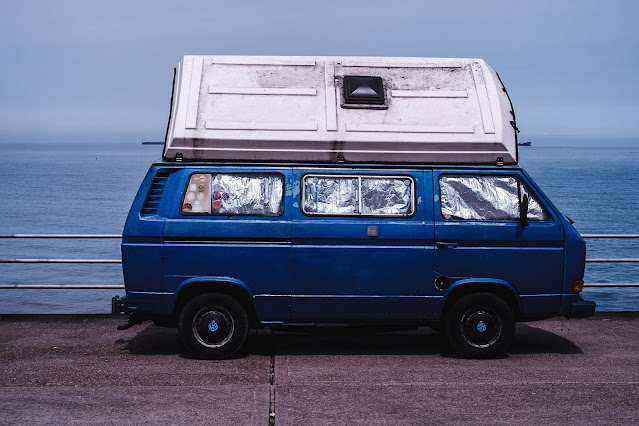Driving into freedom?
I have just finished reading Nomadland by journalism professor Jessica Bruder, on which the Oscar-winning movie is based. It’s an unvarnished look at what old age in America looks like for those who, for a variety of reasons, find themselves without a house-roof over their head but with keys to a vehicle in their pocket.
The surface story is one of freedom of the road: downsize your possessions, leave your rent behind and hit the open trail in a van, a camper or even just a car. But the underlying tale is one of financial insecurity suffered as a result of divorce, illness, bankruptcy or redundancy. The impact of any one of these circumstances can be devastating to anyone and is definitely so in a country without a decent social safety net.
On the road, you’ll meet hundreds of others (not all, but many of them seniors) who make ends meet by working seasonally in Amazon warehouses (walking as many as 15 miles per shift in the enormous spaces that house the stuff we order online) or as ‘hosts’ in national parks (the management of which is outsourced to private companies) or as manual labourers during the sugar beet harvest in North Dakota and Minnesota (back-breaking labour that would put a 20-year-old into traction).
Money. The root of all evil but also the enabler of comfort and dignity. Grasping for more money than we need to live decently can lead to corruption. But not having enough money to cover the bare bones of life will surely lead to desperation.
More and more I see access to money as a social justice issue. (Not an original thought, I know.) For those of us who have had the opportunity of good education and, thus, of options in our work, money is a renewable resource, as my friend Teresa likes to say. Every two weeks, there it is again, in our bank account. But we, too, can be felled by circumstances beyond our control and can find ourselves without a paycheque and the food it puts on our table. And what then? Without a social safety net that provides more than the illusion of an actual net, we are on our own. Possibly in a van, stealth parking in suburbia.
Reading Nomadland was a trip into a sub-culture at once fascinating and frightening. We must not let the politicians deride the notion of a universal basic income. For me, it is a matter of basic human decency.
-----
A Post a Day in May No. 4: For the past two years, I have posted something to this blog every single day in May. This year, I hope to do it again.
Photo by Billy Williams on Unsplash




We watched Nomadland, and I do plan to read the book. The film is astounding. This is the first year in forever that I've stayed up to watch the Oscars, just because I was sure it would take the top prizes, and it did. So do have a look.
ReplyDeleteAll your points are well made. An universal income is certainly one answer. In addition, universal education beyond high school, and basic medical care for all -- both need to happen in the US. But before all that, we, the well fed, need to understand white privilege, something I, for one, have had from birth but didn't look at deeply until I was much older, and I'm not sure I understand it yet.
This is a conversation best had over a bottle of wine in a cozy corner in Minneapolis!